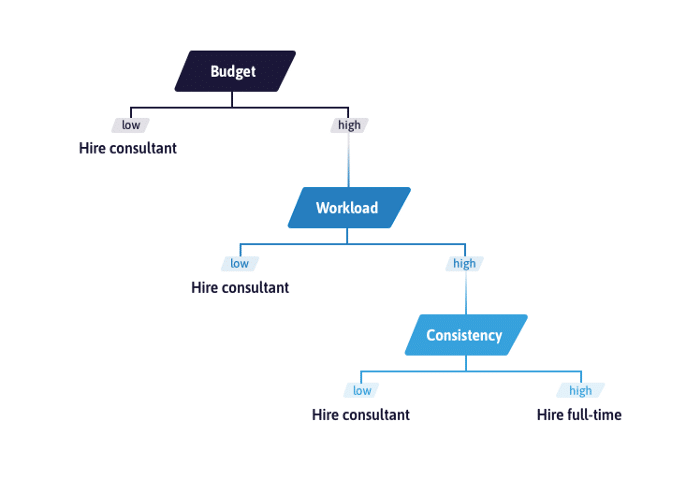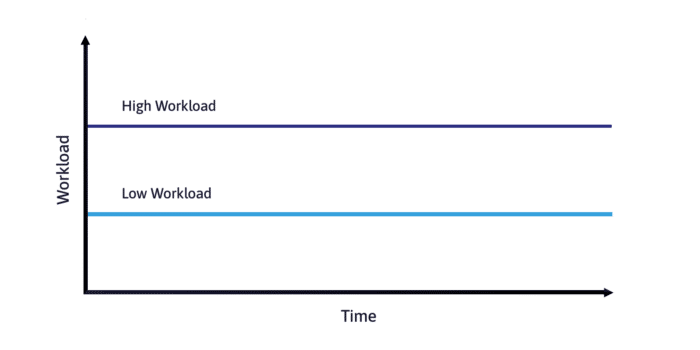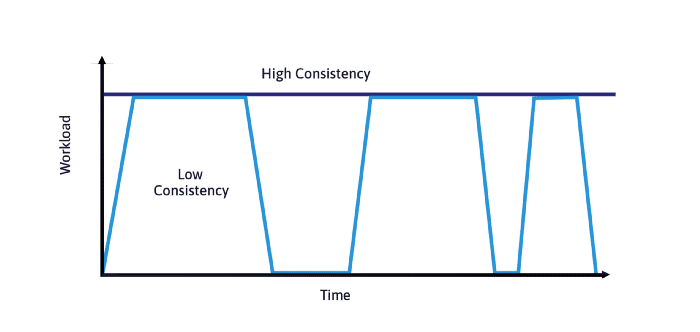AI for Flavored Fizzywater
You have a great idea for an AI project that will change the future of the beverage industry: an AI-driven autoship feature for Flavored Fizzywater. If you get this right you’ll be on the cover of Wired and Forbes in no time. You have years of data from dedicated customers; you just need a data scientist to crunch the numbers and come up with a predictive model for demand. So there’s every reason for you to hire one, right?
At Stratus, we have seen many companies make the critical mistake of hiring a full-time data scientist (“FTE”) to do a data science consultant’s job. In this article we will share a framework you can use to determine whether a full-time data scientist or data science consultant is a better fit for you. We also provide example case studies from our prior work to help you make this decision.
Full-Time Employee Versus Consultant
Hiring an FTE is great if you have a long term, consistent need for a data scientist and a clear idea of what work needs to be done. An FTE comes with many advantages such as “amortizing” the months-long onboarding cost over the tenure of the employee, ensuring continuity of work throughout his/her tenure, and giving the new team mate the opportunity to fully-integrate culturally, reducing friction in communication and work style.
But a consultant makes more sense when what you’re really seeking is flexibility. A consultant is better-suited to handle: 1) temporary surges in work, 2) one-time projects that require special skills, and 3) proof of concept projects that don’t have long-term budget commitments. If you hire an FTE in these cases, you may be spending a lot of money on a hire that may soon become frustrated and demoralized.
Making a Decision
When making a decision between hiring an FTE or consultant, you should consider at least three factors:
- Budget: Do you have enough capital to support an FTE?
- Workload: Do you have enough demand, on an hours-per-week basis, for an FTE over the course of their tenure?
- Consistency: Do you have constant demand for data science work, with few, small gaps?
Taken together, the factors can help you make a decision.

Budget
Budget is at the top of the flow chart because you can’t hire someone you can’t afford. With a small budget and a consultant however, you can still make progress against your goals.
Case Study 1: getting more external funding. A pre-Seed medical devices company had developed hardware that was in clinical trial, but needed to prove that the data coming from it could predict a major aspect of patient health that would reduce hospitalization rates. The company had budget the equivalent to two FTE months and planned to use the research to justify the need for further funding. By developing a prototype model, they were able to acquire further funding for additional data research.
Case Study 2: getting more internal funding. A software company had a small budget to conduct a research project involving data analysis and a research report. With the budget, they were able to conduct the research with a part-time consultant and prove that the avenue of work was a viable one for the company. Because of that proof of concept, the company earned more budget to do two similar research projects.
Workload

Given a high budget, you can then consider workload. Week-to-week an FTE should be working a “full time” schedule that “justifies” his paycheck. In the absence of a full-time workload, a consultant makes most sense.
Case Study 1: 10 hours/week for the CEO. The CEO of a wearables company needed about 10 hours per week, to help with executive-level reporting. He had previously hired a full-time data scientist, but the FTE soon left. When he reassessed his hiring decision, the CEO realized that the core data science tasks were regular, but only generated a small workload. We were able to serve them for a fraction of the cost of an FTE.
Case Study 2: 10 hours/week advising algorithm development. A retail algorithms company we worked with already had a talented data scientist in place. He implemented their initial algorithms on his own, but needed someone to advise him on improving his models. Over the course of six months we were able to advise him on the development of algorithms core to the product.
Consistency

Even with enough budget and high workload, inconsistency in work will call for a consultant. This most commonly happens with one-time algorithm development or research, short-term surges in work, or work that for some other reason comes sporadically.
Case Study 1: backlogged on data. A Series B software company approached us about building a data science team. We decided to start by prototyping a data warehouse and analytics stack. As we did, we learned that the engineering team was so backlogged that the data for the analysis would only become available sporadically — so much so that periods with lots of work were followed by periods of inactivity. They ultimately decided to retain our team until they had consistent work for an FTE.
Case Study 2: research surges on investment decisions. A private equity fund needed data scientists to assess the technology underlying a potential investment. Through interviews with the leadership team and review of the engineering implementation, Stratus was able to advise the fund on the quality and defensibility of the potential investment’s implementation and technologies. The fund still calls Stratus for diligence support as new investment opportunities come up.
Conclusions
So was the Fizzywater company ready for a full-time data scientist? They did not have budget devoted to the data science function, they only had one project scoped out, and they had not determined if they were ready to provide consistent work. In the end, they spent six months finding the perfect data scientist for the job, only to find out that they did not have the infrastructure in place to provide her with sufficient data to train her model. The data scientist dabbled in some data infrastructure work and helped the marketing team, but soon became disengaged and took a job somewhere else.
Don’t make the same mistakes. If you what you really need is a data science consultant, Stratus is here to help.
